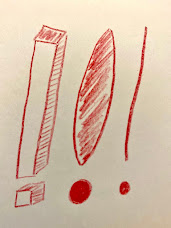Fresh Springs (Heb. 3; 2 Chron. 14-16; Eph. 6)
Humans tend to worry, especially my particular variety, female. I fully know that my lack of trust in God in all things at all times is sin (unbelief), but when I am caught up in a moment of worry, it can be difficult to be objective and see I am accomplishing nothing, but rather steeping myself in fear and doubt. The older I get and the more I read the Bible and let it truly seep into me, the more I become aware of the necessity of completely trusting God at all times, and the more I recognize when I have failed to do so. The writer of Hebrews 3:12-13 warns me: Take care, brethren, lest there be in any of you an evil heart of unbelief leading you to fall away from the living God. But exhort one another every day as long as it is called today that none of you may be hardened by the deceitfulness of sin. Sin is deceitful. The heart is deceitful. Apart from Christ and His Spirit in me, I cannot even recognize that I am petting the unbelief in my heart. The thing is, more than a
